The following is a sermon preached by Rev. Nathan Dell based on the text of “Lift Every Voice and Sing” by James Weldon Johnson, Hymn #339 in Glory to God.
Two widely known prayers that are often set to music are the Lord’s Prayer and the Prayer of St. Francis of Assisi, “Lord, make me an instrument of your peace…” However, there is another musical prayer not so widely known. It comes out of our own African American culture: Lift Every Voice and Sing, written by James Weldon Johnson. We know it as the Negro National Anthem. In the first and second stanza of this song, Johnson addresses his words to the African American community, but in the third stanza, he addresses his words to God. For this reason the third stanza constitutes a prayer of petition.
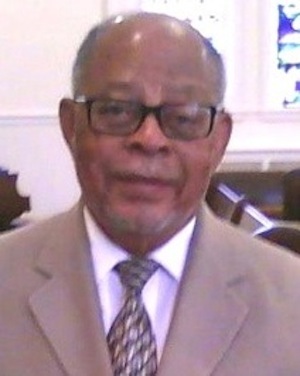
God of our weary years,
God of our silent tears,
Thou who hast brought us thus far on our way;
Thou who hast by thy might
Led us into the light,
Keep us forever in the path we pray.
Lest our feet stray from the places
our God where we met thee,
Lest our hearts, drunk with the wine
of the world we forget thee;
Shadowed beneath Thy hand, may we forever stand,
True to our God; true to our native land.
Like the Lord’s Prayer and the Prayer of St. Francis, this prayer is a good model for a praying people in the face of continuing injustice. It certainly serves as a model for African Americans. I want to use this verse as the “text” for my sermon.
First of all, I want to call attention to the conditions that existed when this prayer was written. Johnson wrote these words in 1900, 35 years after the Civil War. Weariness and unspeakable sadness was the atmosphere in which this prayer was written, filled with over 200 years of forced loneliness; separation of families; fathers and sons beaten, jailed, and lynched; and a declaration of being three-fifths human. Our folks were paid little, if any, wages for the hardest, dirtiest, and most demeaning work. It was a weary time for our African American grandparents and great-grandparents when life was “no crystal stair.”
In his prayer, Johnson speaks of “silent tears.” You are sad indeed when the hurt in your heart is so deep tears cannot make their way up to your eyes. It is sad indeed when your crying has only a voice but no tears. The sadness and pain are still there, but you have no tears left. This constituted some of the conditions black Americans were experiencing when this prayer was written.
___________________________________________
In his prayer, Johnson speaks of “silent tears.” You are sad indeed when the hurt in your heart is so deep tears cannot make their way up to your eyes.
___________________________________________
Now, I leave the background and come to the reason why this prayer is a good model prayer. First, the focus of the writer’s petition is upon God. Under such heavy afflictions and terrible treatment, you would expect the focus of the prayer to be a litany of complaints about misery, suffering, and injustice. But Johnson focused his prayer on the presence of the One who helped black Americans. It was not on how hard life was, but on how available God was; not on how weary the years, but how sustaining the hand of God was. Yes, our ancestors faced intolerable burdens and unspeakable sadness, but they trusted God.
Johnson’s next words reveal interesting details about God’s presence and activity with our ancestors. Listen to the verbs he uses: “Thou who has brought—thou who hast led.” He spoke of a God who directed and guided. Johnson places the focus not on the presence of our troubles, but on the presence of our God; not on the presence of our unkind detractors, but on the presence of our “strong deliverer.” Through the Middle Passage, “Thou hast led us!” At the auction block, “Thou has led us!” Through the lynchings, “Thou hast led us!” Through the Jim Crow era, “Thou hast led us!” We can be thankful that our African American elders always kept their focus on God’s ability to lead them. Whatever difficulties they faced, “Thou hast led us!” Our elders knew that in God and Jesus Christ we have an assurance of divine assistance from One who “does not grow weary, neither does his faith.” (Isaiah 40:29) We have the assurance of assistance of One who can lead us in the right way because He is the Way, and He is the best way for oppressed people to take.
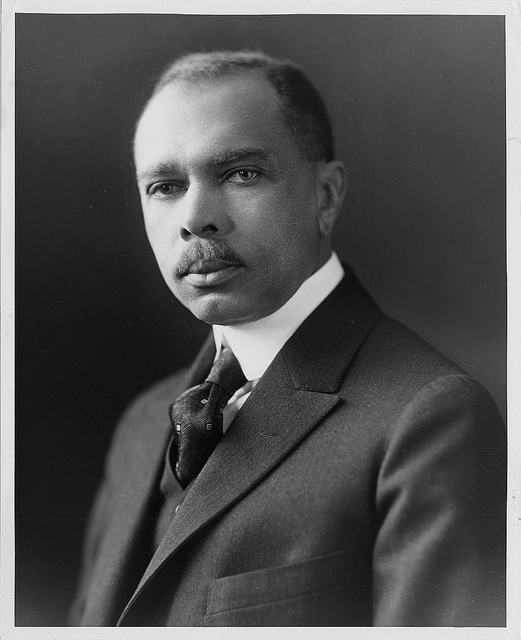
The second reason this prayer is a good model for us is because of who Johnson asks God to deal with. He did not lead the black community to pray for the destruction of their oppressors, like some of the biblical personalities who were vindictive when they prayed. The writer of the 83rd Psalm prayed such a prayer. “Let them be put to shame and dismayed forever; let them perish in disgrace.” Dr. Harold Carter in his book “The Prayer Traditions of Black People” wrote, “The single most remarkable trait of Black prayers was the total absence of the spirit of hate, revenge, and malice especially to the white power structure.”[i]
This is amazing when you consider this prayer was written only 35 years after enslaved people gained freedom (1865); 43 years after the Dread Scott decision that ruled that US territories could not prohibit slavery and neither free or enslaved blacks had any constitutional rights (1857), and 4 years after the Plessey v. Ferguson decision which set the precedent that “separate” facilities for blacks and whites were constitutional as long as they were “equal” (1896). In 1900, the very year Johnson wrote this prayer, 105 African Americans were lynched in the United States.
Instead of leading the Black community to concern ourselves with what we wanted the Lord to do to our oppressors, Johnson’s prayer teaches us to concern our prayers with what we desire God to do to us and with us. “ Lord, keep us.” No reference to what God is to do to our enemies. Keep our feet steady. Keep our hearts right. Keep our lives committed to you and to liberty. Not “Lord erase these mean folk from the face of the earth,” but, “Keep our feet so our desire and delight remains in the way of the Lord!”
As African American History month draws to a close, I urge us to pattern our own prayers after this model. Sometimes you will have to force yourself to do this for weeping will tempt you to forget God. Injustice will tempt you to be vengeful. “Weary years” and “silent tears” will entice you to return injury for injury, hatred for hatred, and evil for evil.
However, if your soul is saturated with the spirit of this prayer, you will find Christ’s grace sufficient to deliver you from a spirit of hatred and revenge. There is a grace in the risen Christ that keeps our feet in the direction of Calvary where, instead of praying that his tormentors be destroyed, Jesus prayed they be forgiven. I urge you to pray in the spirit of Jesus’ prayer and this prayer.
___________________________________________
Instead of leading the Black community to concern ourselves with what we wanted the Lord to do to our oppressors, Johnson’s prayer teaches us to concern our prayers with what we desire God to do to us and with us.
___________________________________________
Then we will be less likely to stray from the places where we met God, the places of prayer and praise, the places of humiliation and need, the places of struggle and deliverance, the places of repentance and forgiveness. This model prayer conditions our souls for the Lord to order our steps in the direction of Calvary. That is where love overcomes hatred, Calvary! Where God makes us secure at the deepest level, Calvary!
Then, whatever policies this nation develops toward us, we can “forever stand true to God.” However much the shortcomings of this nation discourage us, the Lord will enable us to still stand true to the nation’s noblest promise to be “one nation, under God, indivisible, with liberty and justice for all.” Whatever this nation’s policies and attitudes are toward Mother Africa, God will strengthen us to stand true to our roots and heritage.
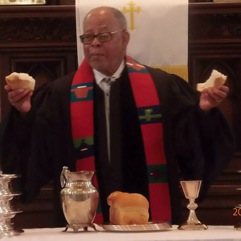 God will keep us true, not only to our adopted land of America, or our native land of Africa, for there is an original “native land” to which we need to stand true. We are “strangers and pilgrims” here. While we have citizenship here, we look for a better city, eternal in the heavens, “which has foundations, whose builder and maker is God” (Hebrews 11:10). Let us stay true to that heavenly native land, to its faith and ethical demands. Where we won’t cry “silent tears,” where we will be free, where the weary will rest, where we will have full participation in the glory that shall be.
God will keep us true, not only to our adopted land of America, or our native land of Africa, for there is an original “native land” to which we need to stand true. We are “strangers and pilgrims” here. While we have citizenship here, we look for a better city, eternal in the heavens, “which has foundations, whose builder and maker is God” (Hebrews 11:10). Let us stay true to that heavenly native land, to its faith and ethical demands. Where we won’t cry “silent tears,” where we will be free, where the weary will rest, where we will have full participation in the glory that shall be.
When we have trod the “stony road” for the last time, when we have wept “silent tears” for the last time, when we have felt the “chastening rod” for the last time, then we will enter our true native land, the New Jerusalem. “God of our weary years…Thou has led us…” Lead on O King Eternal!
AUTHOR BIO: Rev. Nathan Dell is pastor emeritus of Woodville Presbyterian Church and adjunct professor of homiletics at the Samuel DeWitt Proctor School of Theology at Virginia Union University, in Richmond, VA.
[i] Harold A. Carter, The Prayer Tradition of Black People (Valley Forge, PA, Judson Press, 1976), 62.
More from Advent II: LOVE in the Context of Multiculturalism.
Read more articles in this series.


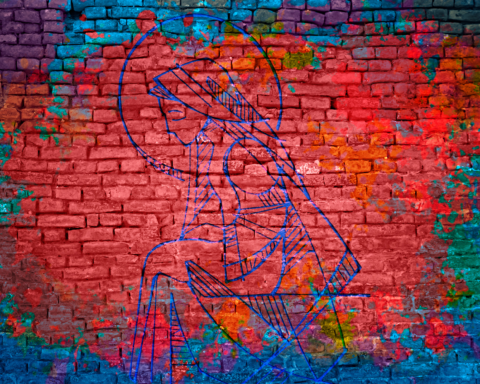

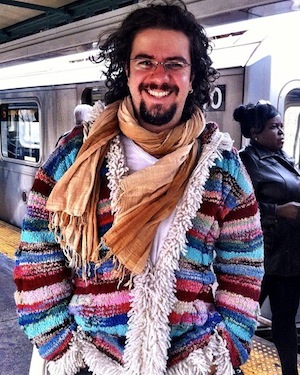

Unbound Social